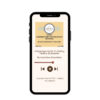Overcoming Addiction: Finding Freedom, Step by Step
James never thought of himself as “addicted.” After all, he still went to work every day, met friends on weekends, and paid his bills on time. But behind closed doors, he leaned more and more on alcohol to get through stressful evenings. What started as “just to relax” became a habit that swallowed his sense of control. He began to wonder: When does a habit cross the line into addiction?
When does addiction begin?
Addiction isn’t only about substances like alcohol or drugs; it can also involve gambling, food, social media, or anything that shifts from choice into compulsion. The turning point is usually when the behavior stops feeling optional and begins to control you. James realized this when he promised himself he’d stop after one drink but found the glass emptying and refilling almost automatically. Addiction often hides in those small betrayals of self-trust.
Recognizing this shift is the first step. The human brain is wired for habits, and certain substances or behaviors hijack those pathways. Addiction is not a personal weakness, it’s a serious condition that thrives in silence.
Taking the first step toward recovery
For James, admitting he needed help felt like standing on the edge of a cliff. He feared judgment, feared losing friendships, feared the label “addict.” But recovery always begins with honesty. First with yourself and later with at least one other person you trust. Speaking the words out loud, “I think I need help,” creates space for change.
Sometimes that step looks like telling a friend. Sometimes it means calling a doctor or walking into a support group. Whatever form it takes, it’s a declaration that you’re ready to break the cycle. And that decision, no matter how small it feels, is monumental.
What to do when relapse happens
James joined a local recovery group and felt stronger than he had in years. But one particularly stressful week, he slipped. For a moment, shame crashed over him, whispering that he had failed. Yet relapse doesn’t erase progress. It instead simply shows that recovery is a process, not a straight line.
Learning from a relapse is more powerful than hiding from it. What triggered it? Stress, loneliness, or lack of structure? By identifying the cause, James adjusted his strategies, adding regular check-ins with his sponsor and committing to healthier ways to cope with bad days.
Relapse is not the end. It’s a reminder to reach for support, refine coping tools, and remember why you started this journey in the first place.
Staying clean and building a new life
Recovery is less about subtraction (removing the addictive behavior) and more about addition. Think about adding healthier routines, supportive people, and self-compassion. James began walking every morning before work. That small ritual gave him a sense of control, boosted his mood, and reminded him that his body could thrive without alcohol.
Self-confidence often rebuilds in layers. At first, it comes from keeping tiny promises: going one day without using, attending a meeting, or journaling instead of reaching for the old habit. Over time, those choices stack up, forming proof that you are stronger than the addiction. And each proof fuels belief.
The role of loved ones
Family and friends are often unsure how to help without pushing too hard. James’s sister didn’t try to fix him; she simply sat with him, listened without judgment, and asked what he needed. That steady presence made all the difference. Sometimes support means driving someone to therapy, sometimes it’s sending a text that says “I’m proud of you.”
The most powerful gift loved ones can give is patience. Recovery is a long journey, and being seen as more than your addiction restores dignity.
Breaking the silence of shame
One of the biggest lies addiction tells is that you should hide. Shame thrives in secrecy, making you feel like you’re the only one struggling. But seeking professional help is not weakness, it’s courage. Therapy, counseling, rehabilitation programs, and medical guidance are not last resorts; they are lifelines.
James eventually started seeing a therapist who specialized in addiction recovery. Together, they explored not only his habits but the emotions driving them: fear, exhaustion, and a desire to escape. Slowly, he learned healthier ways to process stress, and with each session, the grip of shame loosened.
Moving forward with hope
Addiction recovery is about rediscovering joy. For James, that meant reconnecting with painting, something he hadn’t touched in years. For others, it might be learning a new skill, strengthening faith, or finding peace in nature. Life beyond addiction isn’t a blank space it’s a new chapter waiting to be written.
If you or someone you love is struggling, know this: you are not broken, and you are not alone. Recovery is possible, even if the road feels endless. Start with one honest conversation, one act of courage, and keep walking forward.
Important Note
This article is for educational and inspirational purposes only and does not replace professional advice. If you or someone you know is struggling with addiction, please reach out to a healthcare professional, a local support group, or a helpline in your country for immediate help.
Thank you for reading this blogpost! Check our other blogs and Instagram page for more self-care inspiration!
Introducing InnerGlow Premium
Support the mission of mindful living and unlock even more self-care wisdom. As a Premium member, you’ll receive 5 exclusive in-depth articles each month, designed to inspire growth, clarity, and inner peace.
Special Launch Offer: The first 50 members pay just $5/month (instead of $7).
Your membership not only fuels your personal journey, it also directly supports the InnerGlow community and keeps the platform ad-free and independent.
Join today and invest in yourself.





